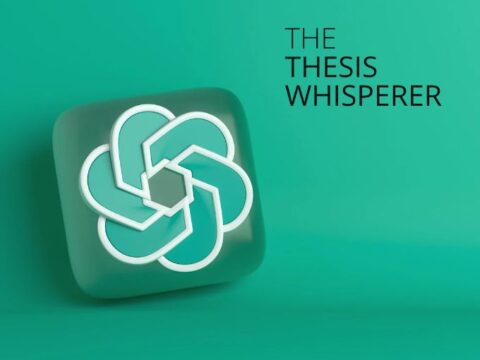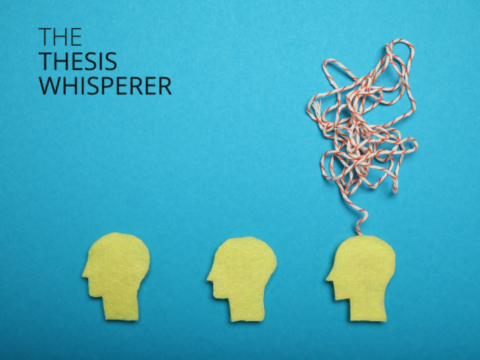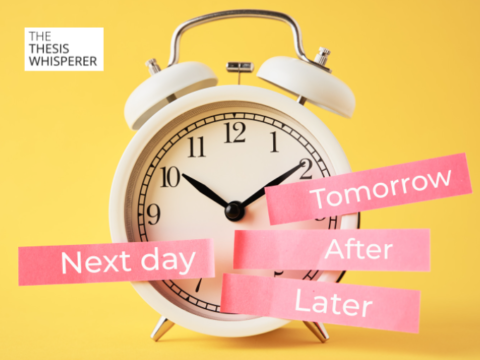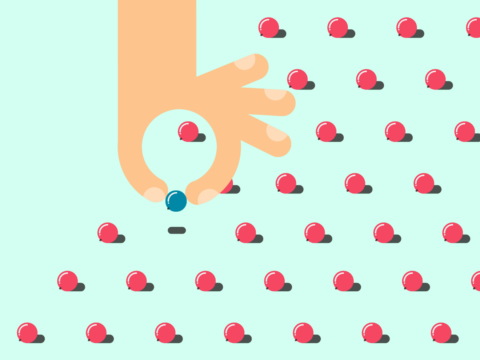What happens after all the dust is settled and you start to pusue this thing called ‘an academic career’? This post is by Dr Pippa Yeoman from University of Sydney who has started what is beginning to be called the ‘post-post-post doc’ stage of the academic career – having completed a PhD in Habits & Habitats: An ethnography of learning entanglement in 2016. Pippa divided her time between research—working as Postdoctoral Research Fellow at the Centre for Research on Learning and Innovation (CRLI) at the University of Sydney—and independent consulting in space and curriculum (re)design in primary, secondary and tertiary settings..
Pippa is an ethnographer of socio-technical innovations in learning, who is coming to the end of her first postdoc position. Having spent more than 1,000 hours observing people at work, in a range of formal and informal learning spaces, she is keenly aware of the need for translational tools that work across academic and professional boundaries. At the moment she is developing tools to support the (re)shaping of space, curricula, and culture. In the future, she wants to develop scalable and humane ways of assessing valued learning activity across time and space. Her work is driven by a conviction that, given the tools, we can all make a positive contribution to (re)shaping the learning ecologies of the future. You can follow her @PippaYeoman or find out more about her work here.
 You can often find me on the edge of things. For the most part it’s where I choose to be. When you do find me in the thick of it, it’s invariably when thinking and speaking collide fuelled by feeling and I really ought to remain silent. But my current state of in-betweenness feeds on silence.
You can often find me on the edge of things. For the most part it’s where I choose to be. When you do find me in the thick of it, it’s invariably when thinking and speaking collide fuelled by feeling and I really ought to remain silent. But my current state of in-betweenness feeds on silence.
I am a postdoctoral researcher.
I am one of the lucky ones. I moved from PhD to postdoc with relative ease. An ease that sometimes made me feel guilty when I found myself paralysed by the uncertainty of what lay ahead. This was my third, fourth or fifth career depending on one’s definition. I’ve held senior positions in industry and raised two small people while starting again.
I am an immigrant.
I am one of the lucky ones. We qualified for permanent residence in Australia because my husband had skills on the Migrant-Occupations-in-Demand List. But the relative ease with which we secured permission to enter masked the challenges associated with starting again. I have lived on four continents, studied on three, and worked on two.
I am a grown up.
Why then do I feel so powerless? I chose to return to university and I want to contribute—so why this disquiet? I am a postdoc at a research-intensive university on a government funded fixed-term contract and when the funding runs dry I will simply evaporate in the system.
I am part of the precariat.
I’ve spent seven years training as an educational researcher. But having enjoyed the privilege of full-time research I haven’t done ‘enough’ teaching. I’ve also spent too much time working across disciplines, so I don’t have an obvious ‘home’, and the effort I’ve put into service, leadership and industry engagement has eaten into time I ‘should’ have been writing. Whatever I have demonstrated there is always something I have failed to demonstrate, and it is this constantly shifting horizon that feeds my sense of powerlessness.
I could remain silent and maybe I should.
But there it is—the thing that keeps us silent—the fear of jeopardising the infinitesimally small chance of securing an ongoing position. Reading from a safe distance as peers unravel online I’ve caught myself wishing someone would stop them from speaking their hearts. We are trained to speak our minds and leave our hearts out of it. But I worry that if I don’t add my voice to the chorus rising then maybe it won’t swell to reach the ears of those who have the power to change things.
And, despite the complex nature of this problem, it does not absolve those in positions of power from responsibly considering the future of those they train. Why do we have to tread this path alone or vainly emulate outdated formulae for success? What is an educated, adult, and humane response to the current state of affairs?
Silence is not option, and ignorance is not a legitimate defence.
Rather than staring into the headlights of the oncoming train or failing to draw attention to the not so temporary road closure ahead, I have chosen to share my thoughts with those who silently walk with me, and those who will come after us.
To stay sane, I needed a way of framing my (academic) career as a unified whole. Something I could build that would have utility even if I ran aground. Looking for the underlying structure I imagined I was building a catamaran, a twin hulled vessel that could make the most of the prevailing winds with not one but two sails. For now, I am putting all my efforts into keeping it intact. But should I run aground I will repurpose one of the hulls and find my way to calmer seas in a canoe.
Learning to frame my work in this way required wrestling my divided heart into submission. Forcibly taking a breath and working out what motivates me as researcher. Mark Reed describes this as having many dreams in which doing what you love is possible. Pausing seemed counter intuitive. But I had spent way too long running on hope that was waning and fear that was rising and I wanted to avoid the tipping-point of desperation. This wasn’t about retreating into contemplation and avoiding action. It was an acknowledgment that extended periods of cortisol induced action don’t normally precede moments of clarity.
Having thought long and hard I decided to extend my contract by reducing the number of days I was being paid to work. I had gone from the final throes of the PhD straight into the postdoc and hadn’t slowed down. This isn’t an option for everyone, and there have been times when I’ve resented reducing my income and not my hours. But it did fix one problem—I now make a point of taking weekends!
In practice this strategy has only delayed the inevitable. But it has given me time to:
- write up my research with a broad audience in mind,
- submit work and deal with the rejection,
- develop practical aspects of my research into workshops that will (a) form the basis of a DECRA or (b) a consulting model,
- update my CV and website, and
- enjoy coffee with people on the outside without being creepy or desperate.
More importantly it gave me permission to opt out of the hope economy, to find ways of being collegial without having to confirm the splendour of the emperor’s new suit. I am also learning to say yes from a position of strength and not the vain hope that ‘If they just knew how great I was they’d hire me!’ because they won’t. It’s more complicated than that and—despite the current valorisation of collaborative endeavours—becoming an academic means demonstrating you can think, work and write on your own. But, for now, I choose to hold onto the hope that if I manage to navigate the next stretch intact then actually being an academic will be a little less insular.
Thank you to The Thesis Whisperer for allowing us to share this post, to see the original post, and many more visit https://thesiswhisperer.com

 Print This Post
Print This Post





